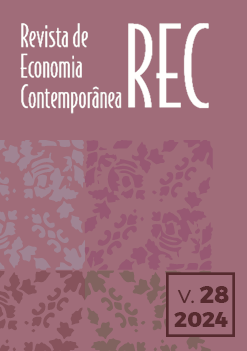The causes of private investment in Brazil: an empirical analysis
Keywords:
Capital. Investment. Private sector. Autoregressive vector. Brazil.Abstract
This study aims to analyze the determinants of private investment in Brazil from 1971 to 2019 based on the peculiarities of emerging economies. These economies have characteristics that are different from those observed in developed countries and constitute the axioms that support the empirical studies usually carried out on the subject. The uncertainty of the political-economic environment, the low availability of credit, the scarcity of foreign exchange, exchange rate policies, and the precariousness of infrastructure are factors that influence investment decisions in emerging economies. Therefore, they should be part of empirical studies. The results of the econometric analysis—based on the Autoregressive Vectors (VAR) methodology and the Error Correction Model (VECM)—indicate that, both in the short and long term, public investment complemented private sector investment (crowding-in effect). This result indicates that public sector investments were channeled into infrastructure or into areas in which the private sector had no interest or capacity to act. This effect is confirmed by the positive result that investments in infrastructure have on the private sector in Brazil.
Downloads
Downloads
Published
Issue
Section
License
Copyright (c) 2024 Carlos Gilbert Conte Filho, Marcelo Savino Portugal

This work is licensed under a Creative Commons Attribution 4.0 International License.


